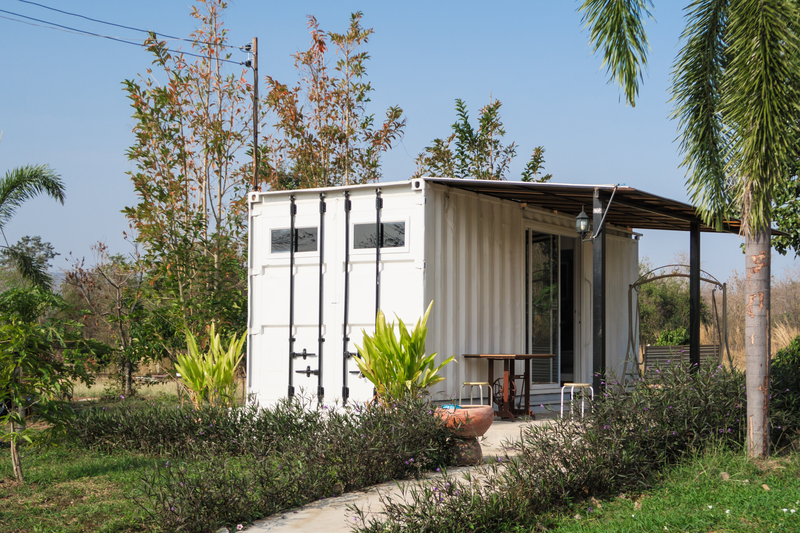Engaging Kids in the Fun World of Recycling
Recycling is more than just sorting waste--it's a creative adventure, especially for children. As environmental concerns grow, teaching kids about recycling not only nurtures eco-consciousness but also empowers future generations to make greener choices. Involving children in the recycling process doesn't have to be a chore; instead, it can be a blend of fun, learning, and discovery. In this comprehensive guide, discover various inventive ways to immerse your kids in the fun world of recycling, helping them actively participate in caring for the planet.
Why It's Important to Teach Kids about Recycling
The earlier children learn about the importance of recycling, the more likely they are to adopt sustainable habits that last a lifetime. Recycling for kids isn't just about separating paper and plastics; it is about making them aware of their impact on the environment and empowering them to innovate and make responsible decisions in everyday life.
- Environmental stewardship: Kids who practice recycling understand how their choices can protect the earth's resources.
- Creativity boost: Upcycling and recycling projects stimulate imagination and critical thinking.
- Responsibility: Teaching recycling to children builds a sense of duty and accountability in their communities.
Engaging and educating children about recycling at a young age is one of the most impactful steps towards a cleaner, more sustainable planet.

Fun Ways to Involve Children in Recycling at Home
At home is where engaging kids in recycling activities can be the most hands-on and rewarding. Here are some creative methods to teach your children about recycling in everyday scenarios:
1. Turn Sorting into a Game
Sorting waste enables kids to distinguish between recyclable and non-recyclable materials. To make it exciting:
- Color-code bins and let children decorate them with stickers or drawings.
- Set up a points-based competition or reward system for correct sorting.
- Host timed races to see who can sort recyclables the fastest.
2. Creative Upcycling Projects
Upcycling--transforming recyclable materials into something new and useful--can spark children's creativity. Examples include:
- Making homemade planters using old plastic bottles.
- Building bird feeders with milk cartons.
- Crafting pencil holders from tin cans, decorating them with paint and paper.
3. Themed Recycling Challenges
Monthly family recycling challenges can motivate kids to think innovatively about reuse. For example:
- See who can create the most unique art project from recycled materials.
- Challenge them to find new uses for items that would otherwise be thrown away.
- Host a fashion show with outfits made from cleaned recyclables!
4. Recycling Storytime
Storytelling is an effective way to introduce complex topics like recycling. Choose children's books that highlight the recycling process and its benefits. Pause to discuss:
- Why recycling matters for animals, people, and the environment.
- Real-life examples and fun facts related to recycling.
- Encourage children to come up with their own recycling superhero stories.
Making Recycling Educational and Entertaining at School
Schools provide a fantastic environment to foster recycling awareness in children. Educators can incorporate recycling concepts into lessons, science projects, and extracurricular activities.
5. Interactive Recycling Education
Use hands-on demonstrations to show kids how various items are recycled. For example:
- Show videos of recycling centers at work.
- Invite guest speakers from local recycling companies.
- Have students conduct experiments such as creating recycled paper from old newspapers.
6. School Recycling Competitions
Friendly competition inspires action. Try these ideas:
- Classroom recycling races--compete to collect the greatest volume of recyclables.
- Create art installations in the school from recycled materials.
- Reward teamwork and creativity through special recognition or certificates.
7. Eco-Club Initiatives
Form a school eco-club where students can plan and operate recycling drives, clean-up events, and awareness campaigns. Kids develop leadership, organization skills, and a sense of pride in their contributions.
8. Visual Learning Tools
Display posters with recycling facts, sorting guides, and the environmental benefits of recycling throughout the school. Use infographics and illustrations to make information easily understandable and memorable for young children.
Interactive and Digital Resources for Kids
Today's children are digital natives. Leverage technology to enhance their recycling education through:
- Recycling games and apps: Engage kids with interactive games focused on sorting, upcycling, and environmental facts.
- Virtual tours: Let children "visit" recycling centers and landfills through videos and interactive 3D experiences.
- Online quizzes and challenges: Test recycling knowledge in a playful, competitive way.
Many educational websites offer recycling challenges for children that provide tips, activities, and rewards to keep their interest alive.
Practical Tips for Parents: Making Recycling a Family Habit
Parents play a critical role in modeling and reinforcing sustainable habits. Consistency and enthusiasm are key to keeping kids engaged in the fun world of recycling.
9. Lead by Example
Actions speak louder than words. Demonstrate good recycling behavior daily--children are quick to pick up on routines and habits.
10. Start Small and Build Up
Begin with one aspect of recycling, like separating paper from plastics, then gradually expand to composting, electronics recycling, or zero-waste practices as your child becomes more comfortable.
11. Celebrate Successes
Recognize and celebrate children's recycling milestones, such as filling up a recycling bin or completing an upcycling project. Positive reinforcement makes the process enjoyable and rewarding.
12. Connect Recycling to Everyday Life
Relate recycling efforts to things children care about. Explain how recycling helps save animals, reduces litter in parks, or saves energy used to make new products.
- "Did you know recycling one aluminum can saves enough energy to power a TV for three hours?"
- "When we recycle paper, we're helping to save trees, which provide homes for birds and animals!"
Exciting Household Recycling Projects for Kids
Keep your kids actively interested in recycling activities for children with these DIY projects:
13. Build a Mini Home Recycling Center
Let kids help set up a family recycling hub with labeled bins and a chart that tracks their recycling progress each week.
14. Start a Compost Bin
Teaching kids how to compost teaches them about food waste and the cycle of nature. Make composting fun by creating a "kitchen science" experiment--track how fruits and veggies break down to become nutritious soil for plants.
15. Host a Recycled Crafts Day
Designate a day each month to make crafts exclusively from reused materials. Invite friends or neighbors to participate and turn it into a community event!
Overcoming Challenges: How to Keep Kids Motivated
Sometimes, kids may lose interest in recycling or see it as just another chore. Here are some ways to maintain their enthusiasm:
- Add Variety: Switch up activities and introduce new projects often.
- Create a Recycling Buddy System: Pair younger kids with older siblings for teamwork and encouragement.
- Share Progress: Show how much waste your family has recaptured and the positive results it's had on the local environment.

Long-term Benefits of Teaching Kids to Recycle
Kids who are involved in recycling develop valuable life skills. These include critical thinking, problem-solving, and environmental stewardship. The engaging world of recycling for youth lays the foundation for them to grow into conscientious adults who will be mindful of their environmental impact.
- Community Contribution: Children who recycle actively often encourage friends and classmates to join them, spreading awareness.
- Resourcefulness: Upcycling and reusing helps children become more inventive and inventive with everyday materials.
- Climate Impact: Early positive habits reduce landfill waste and lower greenhouse emissions over a lifetime.
Conclusion: Raising the Next Generation of Eco-Heroes
Engaging children in the fun and meaningful world of recycling provides countless educational, creative, and environmental rewards. Whether through playful games at home, dynamic projects at school, or interactive online resources, nurturing a love for recycling is a gift that will serve both your children and the planet for years to come.
Remember, the journey starts with a single step--a plastic bottle in the right bin, a craft made from a cardboard box, a family discussion about why recycling matters. With your encouragement and a bit of creativity, kids can become passionate recycling champions and future leaders in sustainability.
Quick FAQ: Engaging Kids in Recycling
- What age can children start recycling? Children as young as toddlers can help sort items if supervised. Adjust lessons and activities based on their age and interests.
- What household items are best for recycling activities? Paper, cardboard, plastic bottles, tin cans, and old clothing are all safe and readily available for most recycling crafts and games.
- How can schools support recycling education? Schools can provide recycling bins, organize workshops, and integrate sustainability into the curriculum for hands-on learning.
Start your family's recycling journey today--the environment will thank you, and so will your children's future selves!